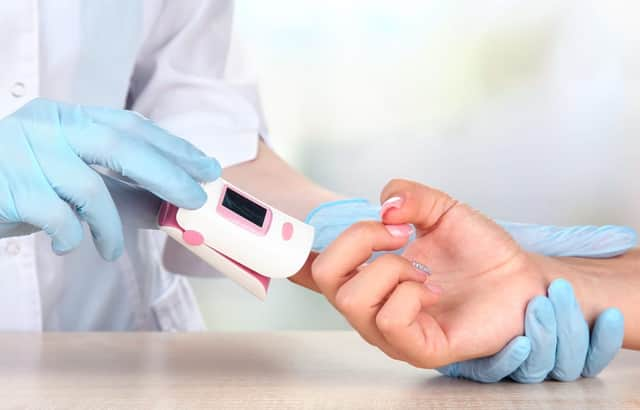Online NHS Covid symptom checker may have delayed seriously ill people from seeking medical help


A new study has criticised the effectiveness of the NHS Covid symptom checker, saying it may have failed to identify seriously ill patients.
The NHS 111 symptom checker was introduced in 2020 as a tool to offer advice to those with coronavirus, giving appropriate advice on what steps they may need to take next.
Advertisement
Hide AdAdvertisement
Hide AdThe tool - used over 3.9 million times over the past year - asks users a series of questions based on their symptoms, offering information on whether sufferers need further medical help.
A new study published in BMJ Health and Care Informatics, however, has criticised the tool, saying that it may be wrongly advising people to stay at home when they in fact need further medical attention.
'Ongoing concerns' about UK symptom checker
The study compared online coronavirus checkers from four countries - Singapore, Japan, the UK and the US - inputting 50 stimulated cases to examine what results were given.
It was discovered that UK and US symptom checkers were half as likely as the Japanese and Singaporean checkers to advise people to seek help from a doctor.
Advertisement
Hide AdAdvertisement
Hide AdNHS Digital has defended the system, saying it is not a diagnostic tool and has been constantly updated and added to in order to keep abreast of the latest information and data on coronavirus.
Though the research was carried out in April 2020, researchers who carried out the study say they nonetheless have "ongoing concerns".
Lead author of the study, Dr Daniel Goyal, from the University of Gibraltar, said their worries related to "trying to qualify the severity of illness using a patient-led system".
"There have been improvements with NHS 111 online over the course of the year," he explained.
Advertisement
Hide AdAdvertisement
Hide Ad"But I do not think it would consistently pick up silent hypoxia and could not replace clinical contact."
What is silent hypoxia?
Silent hypoxia happens when oxygen levels drop dangerously low in the body, sometimes without a patient noticing.
This has led to some patients arriving in hospitals extremely ill, and sometimes too late to be treated effectively.
NHS Digital says anyone with underlying conditions who contracts coronavirus is advised to seek further clinical help, as well as anyone with breathlessness as a main symptom. It will also advise seeking further help or calling 111 if symptoms worsen or anything changes.
The researchers say their study demonstrates the need for symptom checkers to go through the same standards of quality assurance as diagnostic tests before they are rolled out to the public.